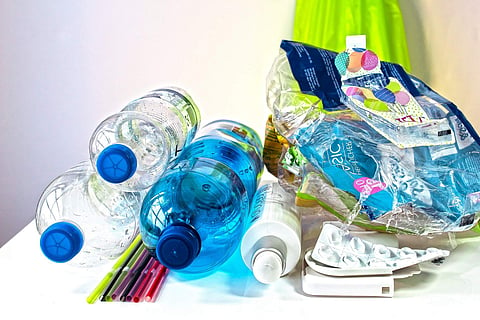

There is a reason they say you've got to catch 'em young. Waste No More, a meticulously curated digital curriculum, specially designed for public school students of Classes IV to VII, was aimed to do just that. Laden with fun-to-watch animated videos and fun-to-do engaging activities, the curriculum helps kids realise the importance of learning about waste management and teaching others as well. Twenty minutes — that's all the child needs across 12 weeks to get through the curriculum, which was designed keeping in mind their attention spans.
The curriculum of Waste No More will introduce the kids to three friends — Plasto, Rani and Raj — who are on the noble mission to clean the country and learn all that there is to learn about waste management. Waste segregation, impact on landfills and marine life, understanding the concept of 'reduce, reuse and recycle' and real-world challenges — all this and many more concepts will be easy for students to grasp.
School Education Department, Government of Maharashtra, along with HUL and the India2022 coalition led by Xynteo, a tribe of world's leaders working on the problems of the future, are at the helm of it all. This curriculum is available to students via Government of Maharashtra's DIKSHA app. "Over the last few years, we have been working to create awareness on driving behaviour change, a critical aspect in managing plastic waste. Starting with a couple of schools in Dahisar a couple of years back, we started teaching children on segregation of plastic, how to make reusable plastic by making new and useful things and so on. However, to educate children on a large scale and across the state, we believe that a digital platform provides endless possibilities," says Subhashini Chandran, Managing Director, Xynteo India.
"The Government of Maharashtra is committed to its vision of improving cleanliness and sanitation in the state through waste management and segregation," asserts Vishal Solanki, Commissioner, Education, State of Maharashtra. Curious, we ask the commissioner more about the development of this course and how they intend to ensure that it reaches even those students who are digitally disconnected. Excerpts:
Tell us about the role children will play, both in the present and future, in managing waste and influence elders around them as well.
Children play an important role in advocating environmental conservation within the communities. Once children are adequately sensitised, they keep their school campuses clean and educate their parents to keep their homes clean. If children are educated in their early years, we are sure that in years to come, they will change the habits of their families and surroundings.
For how long has this been in the works and what are some essential components of the curriculum that the School Education Department, Maharashtra wanted to make sure are present for children to learn.
As part of the India2022 coalition, in 2020, Waste No More's pilot programme was started in Kolhapur and Nashik, where 80,000 students across 1,550 schools were inducted on sustainable waste disposal and segregation methods. The roll-out of the curriculum and impact evaluation have indicated a positive step towards behaviour change with students not only religiously following the programme resulting in cleaner classrooms but also actively encouraging their parents to take necessary measures to segregate waste in their homes.
Since this is a digital programme, are steps being taken to ensure that the course reaches even those who are digitally isolated?
As part of the Learn from Home Initiative by the Maharashtra Education Department, the WNM content is approved for tele-series on a state education channel, to be released soon. Due to COVID, direct access to students is unavailable, the government has encouraged various initiatives to ensure students have access to digital content since it’s the only available medium till schools reopen.
